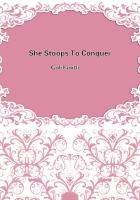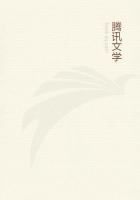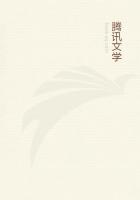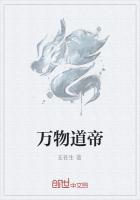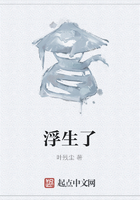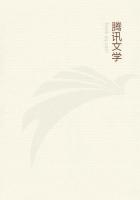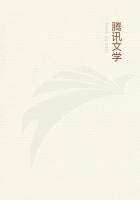"The Chopunnish have very few amusements, for their life is painful and laborious; all their exertions are necessary to earn even their precarious subsistence. During the summer and autumn they are busily occupied in fishing for salmon and collecting their winter store of roots.
In winter they hunt the deer on snow-shoes over the plains, and toward spring cross the mountains to the Missouri for the purpose of rafficking for buffalo-robe. The inconveniences of their comfortless life are increased by frequent encounters with their enemies from the west, who drive them over the mountains with the loss of their horses, and sometimes the lives of many of the nation."
After making a short stage on their journey, October 11, the party stopped to trade with the Indians, their stock of provisions being low.
They were able to purchase a quantity of salmon and seven dogs.
They saw here a novel kind of vapor bath which is thus described in the journal:--"While this traffic was going on we observed a vapor bath or sweating-house, in a different form from that used on the frontier of the United States or in the Rocky Mountains. It was a hollow square six or eight feet deep, formed in the river bank by damming up with mud the other three sides and covering the whole completely, except an aperture about two feet wide at the top. The bathers descend by this hole, taking with them a number of heated stones and jugs of water; after being seated round the room they throw the water on the stones till the steam becomes of a temperature sufficiently high for their purposes.
The baths of the Indians in the Rocky Mountains are of different sizes, the most common being made of mud and sticks like an oven, but the mode of raising the steam is exactly the same. Among both these nations it is very uncommon for a man to bathe alone; he is generally accompanied by one or sometimes several of his acquaintances; indeed, it is so essentially a social amusement, that to decline going in to bathe when invited by a friend is one of the highest indignities which can be offered to him.
The Indians on the frontier generally use a bath which will accommodate only one person, formed of a wicker-work of willows about four feet high, arched at the top, and covered with skins. In this the patient sits, till by means of the heated stones and water he has perspired sufficiently.
Almost universally these baths are in the neighborhood of running water, into which the Indians plunge immediately on coming out of the vapor bath, and sometimes return again and subject themselves to a second perspiration.
This practice is, however, less frequent among our neighboring nations than those to the westward. This bath is employed either for pleasure or for health, and is used indiscriminately for all kinds of diseases."
The expedition was now on the Snake River, making all possible speed toward the Columbia, commonly known to the Indians as "The Great River." The stream was crowded with dangerous rapids, and sundry disasters were met with by the way; thus, on the fourteenth of October, a high wind blowing, one of the canoes was driven upon a rock sidewise and filled with water.
The men on board got out and dragged the canoe upon the rock, where they held her above water. Another canoe, having been unloaded, was sent to the relief of the shipwrecked men, who, after being left on the rock for some time, were taken off without any other loss than the bedding of two of them.
But accidents like this delayed the party, as they were forced to land and remain long enough to dry the goods that had been exposed to the water.
Several such incidents are told in the journal of the explorers.
Few Indians were to be seen along the banks of the river, but occasionally the party came to a pile of planks and timbers which were the materials from which were built the houses of such Indians as came here in the fishing season to catch a supply for the winter and for trading purposes.
Occasionally, the complete scarcity of fuel compelled the explorers to depart from their general rule to avoid taking any Indian property without leave; and they used some of these house materials for firewood, with the intent to pay the rightful owners, if they should ever be found.
On the sixteenth of October, they met with a party of Indians, of whom the journal gives this account:--"After crossing by land we halted for dinner, and whilst we were eating were visited by five Indians, who came up the river on foot in great haste. We received them kindly, smoked with them, and gave them a piece of tobacco to smoke with their tribe.
On receiving the present they set out to return, and continued running as fast as they could while they remained in sight.
Their curiosity had been excited by the accounts of our two chiefs, who had gone on in order to apprise the tribes of our approach and of our friendly disposition toward them.
After dinner we reloaded the canoes and proceeded.
We soon passed a rapid opposite the upper point of a sandy island on the left, which has a smaller island near it.
At three miles is a gravelly bar in the river; four miles beyond this the Kimooenim [Snake] empties into the Columbia, and at its mouth has an island just below a small rapid.
"We halted above the point of junction, on the Kimooenim, to confer with the Indians, who had collected in great numbers to receive us.
On landing we were met by our two chiefs, to whose good offices we were indebted for this reception, and also the two Indians who had passed us a few days since on horseback; one of whom appeared to be a man of influence, and harangued the Indians on our arrival.
After smoking with the Indians, we formed a camp at the point where the two rivers unite, near to which we found some driftwood, and were supplied by our two old chiefs with the stalks of willows and some small bushes for fuel.
"We had scarcely fixed the camp and got the fires prepared, when a chief came from the Indian camp about a quarter of a mile up the Columbia, at the head of nearly two hundred men.

